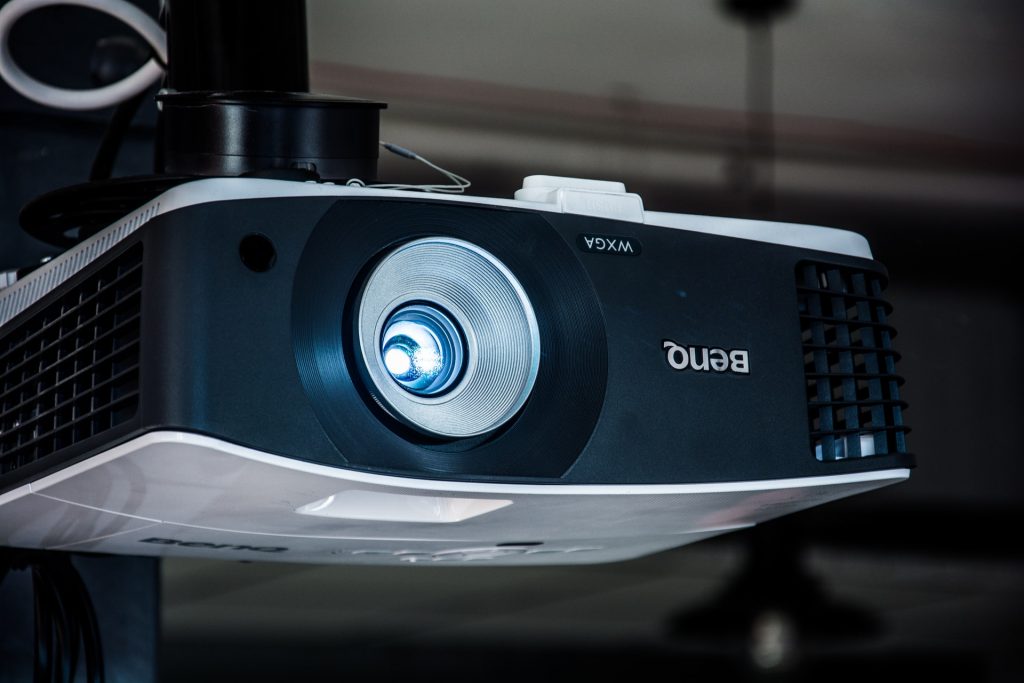Which is better; laser projector vs. normal projector? This question is one of the most frequent questions asked before buying a projector.
Indeed, selecting the ideal projector for your home entertainment or even work conference room can be challenging. Settling for either of the two projectors might be advantageous depending on how you want to use it.
This article’s design takes an in-depth look at the following:
- How laser projectors work together with their pros and cons
- How lamp projectors work together with their pros and cons
- Factors to consider before settling for either type of projector
- Laser projector vs. normal projector, which is better?
You’ll be able to make an informed decision on which projector you should buy by reading this article wholly.
Let’s jump right in!
Laser Projectors
You’ve probably watched that thrilling scene from Star Wars where the giant death star shoots lasers to blow up rebellious planets. Luckily enough, there are no laser-shooting projectors that will create holes in your projector screens or walls.
So what exactly is a laser projector?
A laser projector, similar to typical projectors, displays images or videos from a source to a projector screen or a wall. The most modern projector technology displays images by changing laser beams.
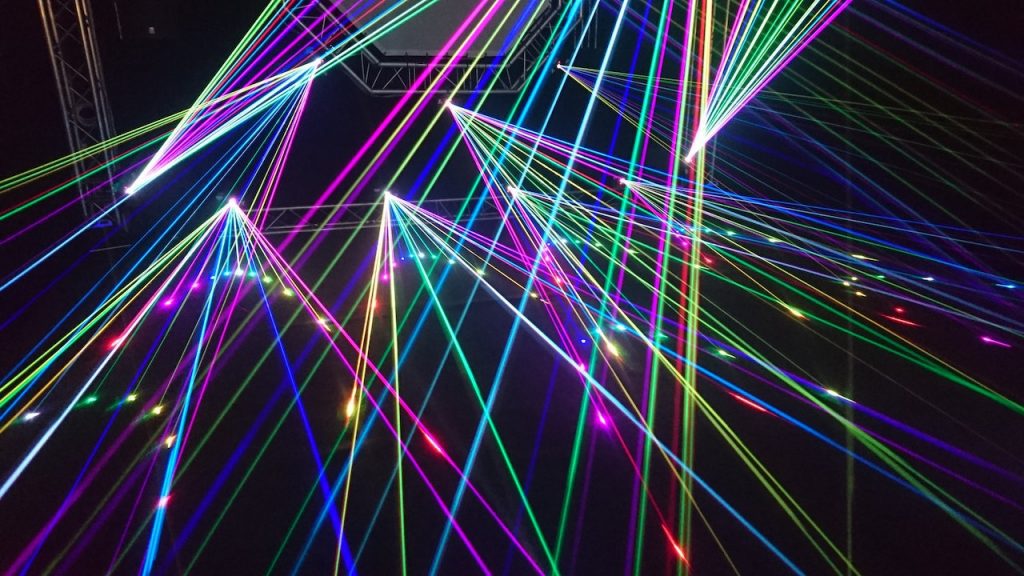
A laser projector’s housing is packed with a lot of optical components that help the projector display images and videos. However, it is important to note that buying a laser projector does not guarantee the ultimate viewing experience.
Check this out:
You’ll need to get a laser projector with the right specifications and pair it with the right projector screen.
You’re probably wondering what are the advantages of using laser projectors. We’ll discuss that in the next section of this article.
Pros of Using Laser Projectors
There are specific advantages that the laser projector has over other types of projectors that make them attractive to end users. Check them out:
1. High Image Quality
A projector’s image quality is one of the primary factors determining whether you’ll acquire it. Laser projectors produce high-quality images because they do not rely on a bulb, as how normal projectors do.
It, therefore, means that they have a wider gamut of images and colors which helps them project images with high contrast and perfect coloring.
2. Low Maintenance
A normal projector has a bulb that it uses to project images over a screen or a wall. This bulb often gets broken and requires replacement for the projector to function. Laser projectors do not require regular maintenance by replacing broken internal components.
Projector bulbs for normal projectors are cost-intensive. By doing away with these lamps, laser projectors become low maintenance.
3. Efficient on Energy
The energy consumption topic should be on the discussion table when comparing laser projectors vs normal projectors (lamp projectors). Laser projectors are energy efficient. They do not need to light or warm any bulbs for the projector to display images.
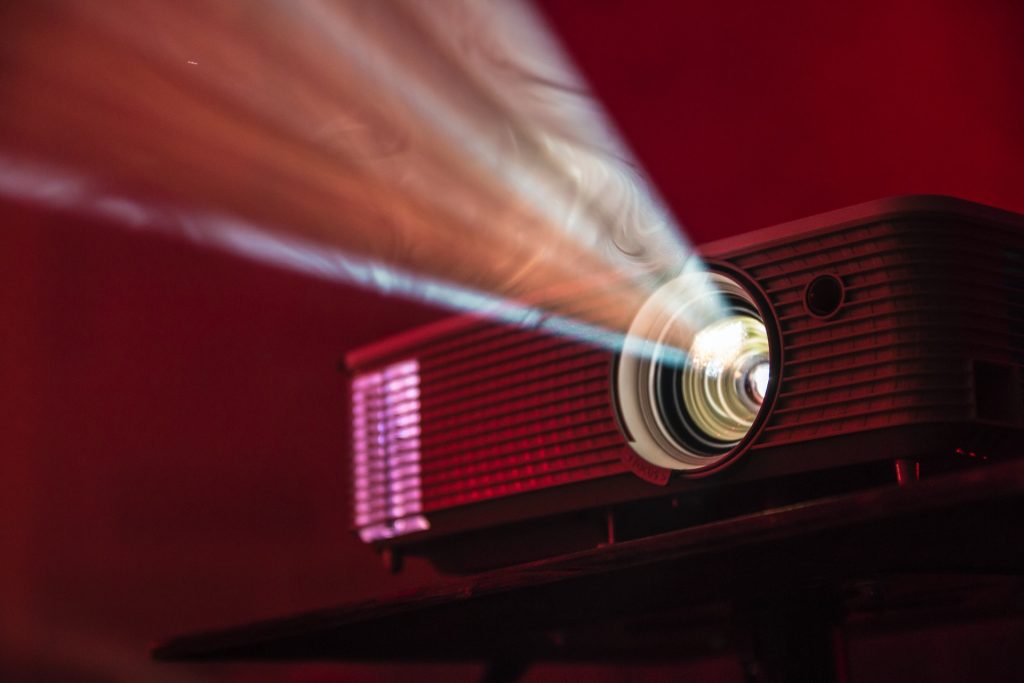
4. Short Throw Distance
Laser projectors are ideal for almost any room since they have an ultra-short throw distance. This feature makes them marketable as you can place the projector near the projector screen.
However, that does not mean that laser projectors do not have throw distance specifications. It would be best for you to consider checking your laser projector’s recommended throw distance first before acquiring it.
Laser projectors do not all share the same throw distance.
Cons of Using Laser Projectors
Despite having attractive features, the laser projector has two key demerits. Check them out:
1. High Initial Acquisition Cost
One of the disadvantages associated with laser projectors is that their initial cost is significantly higher compared to lamp projectors. When comparing costs laser projector can cost around $2,500* while the lamp goes for $1,000*.
*Please note that these prices can differ depending on your location and the specifications you wish on your laser projector.
2. Periodic Calibration
Laser projectors will require periodic calibration. This calibration process helps the laser projector restore or maintain high image quality.
In summary:
Pros
Cons
Normal Projectors (Lamp Projectors)
Some experts prefer referring to normal projectors as lamp (or bulb) projectors. It is because this type of projector depends heavily on its lamp to produce light for image and video projections.
Here’s how a lamp projector works:
A normal projector displays images by first warming up the bulbs. After warming up, the projector’s bulb produces a highly bright light that is white. This light is what is supposed to help the projector display images.
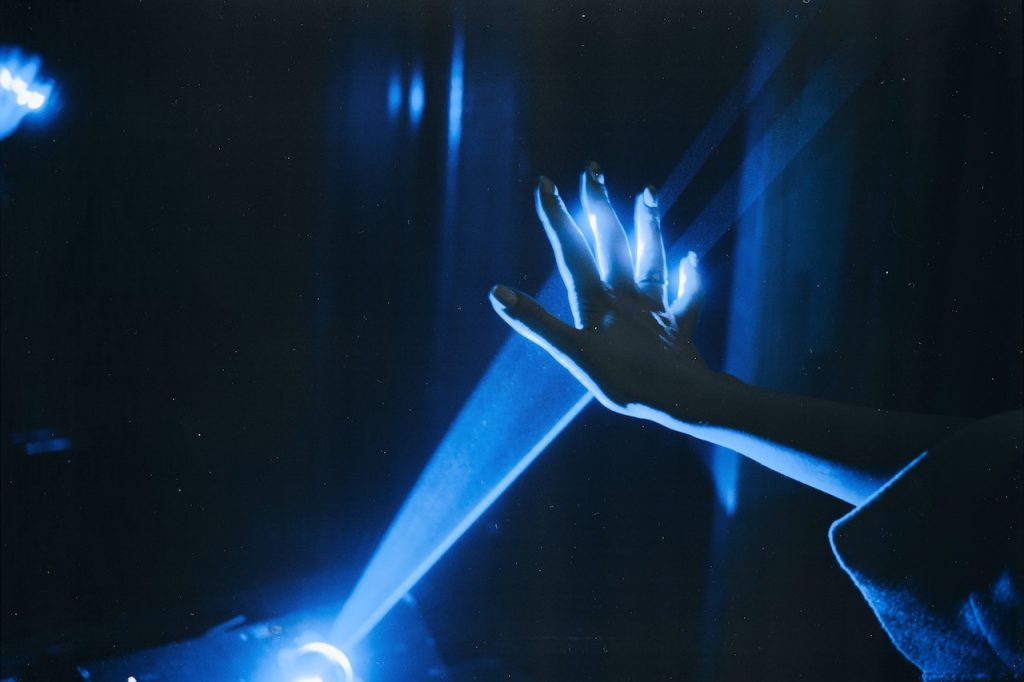
When the light is produced by the projector, it is directed to a projector screen or a wall. Therefore, if the lamp is broken, the projector will not work.
Similar to the laser projector, a lamp projector also has pros and cons. Let’s start by checking out the pros:
Pros of Using Normal Projectors
Similar to laser projectors, some factors make the normal projector attractive to end users. Check them out:
1. Affordable
Lamp projectors are more affordable compared to laser projectors. The difference in cost is because normal projectors have been around for a longer time – more than laser projectors.
2. No Calibration is Needed
Since normal projectors use lamps to produce light, they do not need the periodic calibration that laser projectors need.
Cons of Using Lamp Projectors
There are three main demerits of using normal projectors over laser projectors. Check them out:
1. Short Lifespan of the Lamp
A normal projector has a bulb that produces bright light necessary for the projection of images. These bulbs have a short lifespan, especially if your projector is set to use maximum brightness. It, therefore, means that these bulbs will require regular replacement.
In addition, these replacements are cost-intensive.
2. Inefficient on Energy
Normal projectors are inefficient on energy. They’ll first require the projection lamp to warm up and then light up. When the projection bulb lights up, it stays on, meaning that the projector consumes more power.
If the projector runs for a considerable amount of time, the room becomes quite hot, requiring you to use fans to cool it. Using fans to cool requires power, meaning that the overall energy used in powering lamp projectors is high.
3. Lower Quality Images
Normal projectors do not have high-quality image output compared to laser projectors. Lamp projectors have a narrower gamut which limits them from projecting outstanding images and videos.
In summary:
Pros
Cons
So you’re probably thinking to yourself:
“How should I decide which projector to buy the laser projector vs. the normal projector”?
Factors to Consider Before Settling for a Projector
There are six important factors that you’ll need to put into consideration that will help make the right decision.
1. Color and Contrast
Laser projectors indeed display high-contrast images with deep colors compared to lamp projectors. It would be best for you to get a laser projector if you have a practical reason why you’d like to view high-contrast images with deep colors.
At this point, it is important to remember that laser projectors cost more money than lamp projectors. If you have an existing lamp projector that works just fine, then it might be economically feasible for you to retain the lamp projector.
2. Brightness
Laser projectors are way brighter compared to normal projectors. They have a higher lumen count of up to 20,000 ANSI lumens (or more). Most home theater or conference rooms do not need this level of brightness.
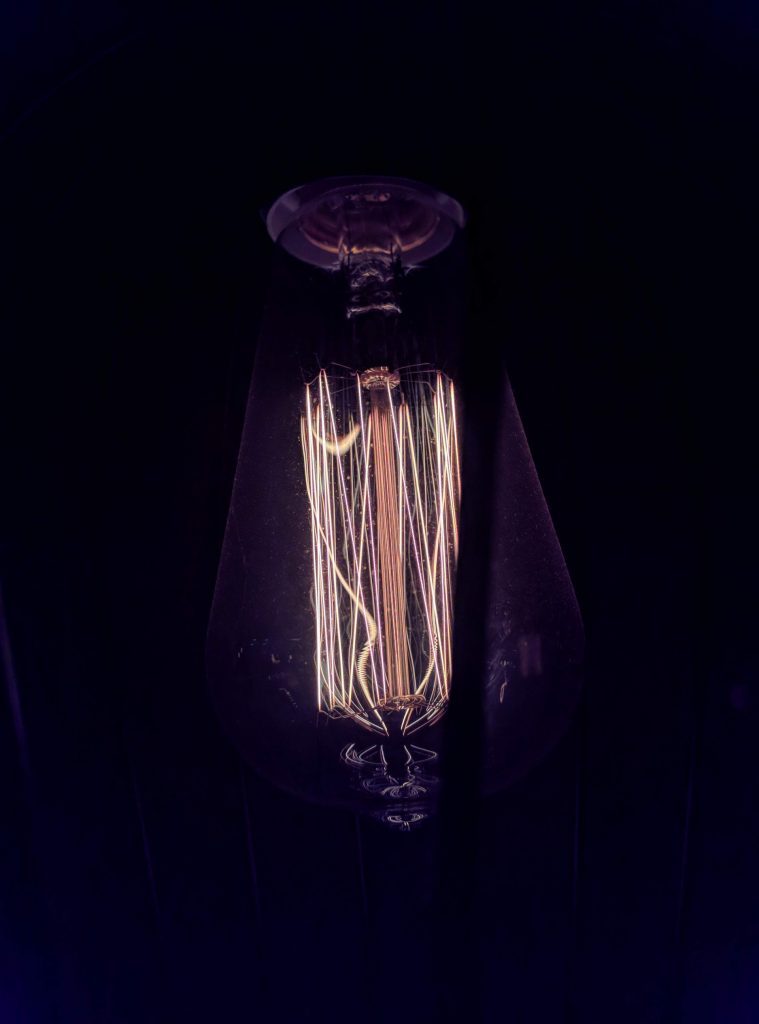
A lamp projector producing 5,000 ANSI lumens can display images in dark and bright rooms. Deciding on which projector to get between the laser projector vs. normal projector depends on the following:
- The brightness of your room – brighter rooms require stronger projectors that have a high lumen count. Trying to project images or videos on a white projector screen in a room with a lot of ambient light causes your images to appear washed out.
You can resolve this issue by changing your projector screen to a darker color such as gray, and get a high-lumen projector.
- Your color and contrast preferences – laser projectors have a wider gamut of colors and images. That makes them the better option for high contrast and deep color images between the two.
3. How Long Do You Intend to Use Your Projector?
When comparing these two types of projectors, it is only logical to conclude that the former has a longer lifespan than the latter. Laser projectors can last almost 10x longer than lamp projectors.
A typical laser projector has an average lifespan of 20,000 hours while a lamp projector can have at most 2,500 hours. If you intend to use projectors for long, consider acquiring a laser projector – it has lesser maintenance requirements and lasts longer.
4. Projector Speed
How fast would you want your projector to boot up? Laser projectors boot faster than normal projectors. Remember, normal projectors need time to warm up their lamps.
If you are in a fast-paced environment, it would be best if you’d get a laser projector. It’ll not keep you waiting.
5. Installation and Maintenance
Projector installations depend on their throw distance. Laser projectors have an ultra-low throw distance, meaning that they can be placed close to the projector screen on a table. On the other hand, lamp projectors need adequate throw distance to display images correctly.
You may have to mount your normal projector (probably on the ceiling). Consider mounting it in an easy-to-access position because it will require periodic maintenance. In addition, dust interferes with how lamp projectors function. They have filters that trap dust that have to be cleaned periodically.
As such, it would be best to mount your lamp projector in an easy-to-access position that is dust-free.
Laser projectors do not need to be mounted. Laser projectors are low-maintenance – they rarely break down. So if you are looking for a low-maintenance and quick-installation projector, it would be best to select the laser projector.
6. Cost
Laser projectors have a higher upfront cost compared to lamp projectors. Laser projectors can cost around $2,500*. On the other hand, normal projectors can cost around $1,000*.
*Please note that these values may be different depending on your location and the specs you want on your projector.
Getting laser projectors is less stressful because they are low-maintenance. On the other hand, lamp replacement can cost up to $350*. A standard halide lamp can last up to 2,500 hours (equivalent to four months or 128 days).
Which is Better, Laser Projector vs. Normal Projector?
It depends on how you’d want to use your projector. Both projectors are good, but the laser projector has outstanding features and performance. It is way more beneficial compared to the normal projector.
However, it’ll cost you more money to acquire a laser projector than to acquire a normal projector.

Final Thoughts
A laser projector is the most modern projector technology that displays images by changing laser beams. This projector’s housing is packed with a lot of optical components that help the projector display images and videos.
It has a high lumen count of up to 20,000 ANSI lumens (or more), which are beneficial in displaying high-contrast images with deep colors.
A normal projector displays images by first warming up the bulbs. After warming up, the projector’s bulb produces a highly bright light that is white. This light is what is supposed to help the projector display images.
A lamp projector with 5,000+ ANSI lumens should be enough to help you display images in both dark and bright rooms (rooms with a lot of ambient light).
Before acquiring either of the two projectors, consider the following factors:
- Do you need high-contrast images with deep colors?
- How bright should your projector be? (Depending on the ambient light in your room)
- How fast do you need your projector to boot up?
- What’s your budget? (Laser projectors have a higher upfront cost than lamp projectors)
- Where will you install your projector? Will the projector require maintenance?
Still not sure which projector to get? Reach out to us right now for more information and assistance on which projector will best suit your needs!

